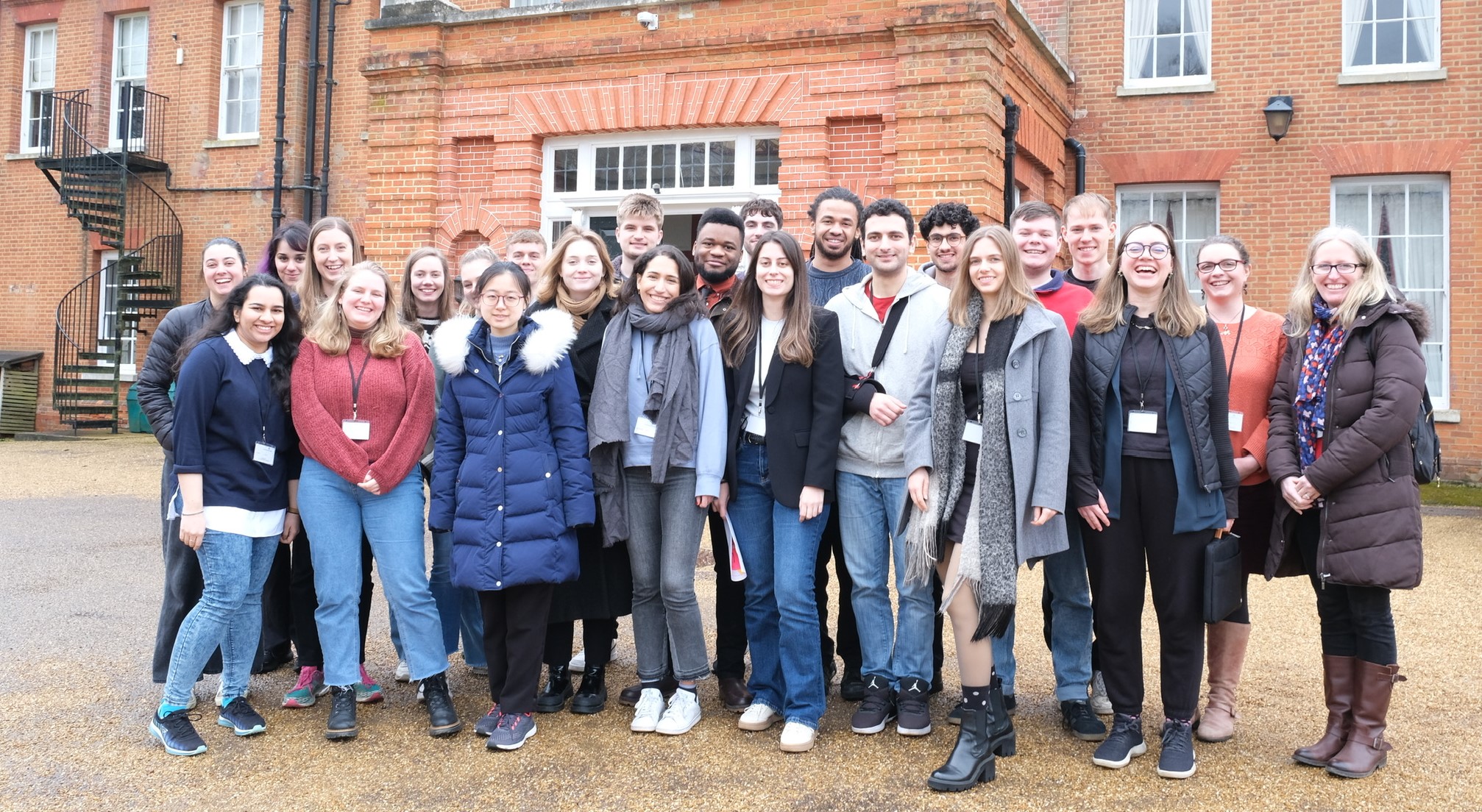
Our 2022 Student Profiles
- Charlie Brown
- Angeliki Chatziathanasiou
- Nicole Christou
- Jack Dainton
- Simon Doughty
- Zak Elliott
- Anouk Huyghebaert
- Cecilie Joergensen
- Anna Kukushkina
- Amy McIntosh
- Tom Mills
- Sean Nwachukwu
- Sofia Philipps
- Abdullah Shahid
- Sofia Srdanovic
- Nicolas Zeitouni
- Jonathan Bostock
- Eleanor Clifford
- Dominika Daremiak
- Fatemah Kassamali
- Titan Lai
- Issy Mathiesen
- Xixian Yi
 Name
Name
Charlie Brown
Project Title
Targeting ovarian cancer using fragment-based drug discovery
What were you doing before enrolling in the ICB CDT Programme?
Before my PhD I did a MSci Natural Sciences degree at Durham University.
Why did you choose to apply for your particular project?
During my undergraduate degree and masters project I really enjoyed working at the boundary between Chemistry and Biology, and learning about how these disciplines combined to develop new drugs. I applied to this PhD project as it allowed me to gain experience in early-stage drug discovery, learning a variety of different techniques and contributing to a very exciting field of science.
What are you looking forward to the most within the CDT programme?
I am mostly looking forward to learning from other researchers within Imperial, both by working with them on collaborative projects, and by attending lectures and talks.
Please tell us a fun fact about yourself!
I have the same name as a cartoon character, and I also have a black and white dog (although not called Snoopy).
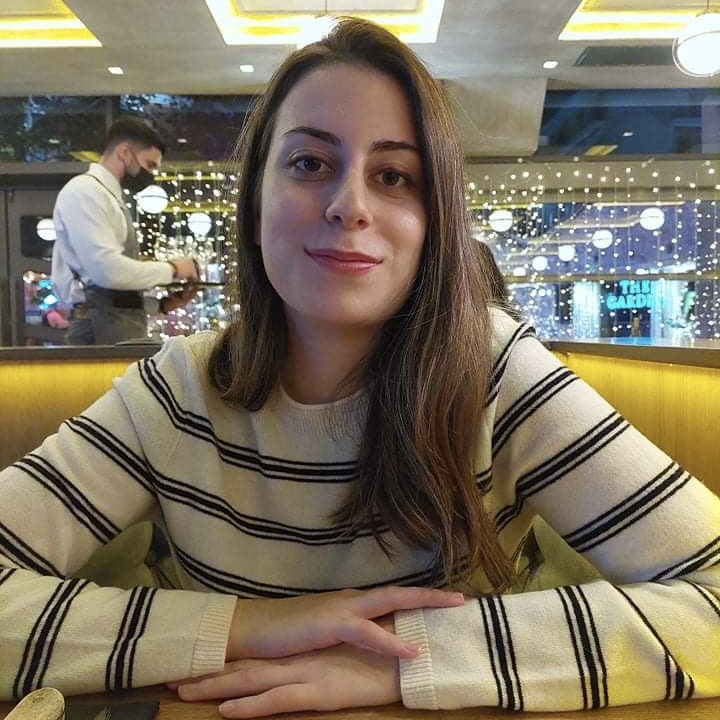 Name
Name
Angeliki Chatziathanasiou
Project title
Identifying new types of inhibitors in quinone binding sites in photosynthetic enzymes.
Co-sponsored by the Institute of Chemical Biology EPSRC Centre for Doctoral Training and Syngenta
What were you doing before enrolling in the ICB CDT Programme?
I completed my undergraduate and postgraduate studies in Chemistry at the University of Crete. I spent 3 months in Consiglio Nazionale delle Ricerche - Istituto di Ricerca sugli Ecosistemi Terrestri in Florence, Italy, as an Erasmus+ fellow, which solidified my interest in academia.
Why did you choose to apply for your particular project?
I was always fascinated by photosynthesis and the unbreakable connection between nature’s mechanisms and human life on earth. Therefore, I investigated photosynthetic organisms and a variety of natural products with industrial interest as part of my undergraduate and postgraduate training. Having experience in the field, I chose this project to explore a different aspect of photosynthesis, aiming towards agricultural sustainability.
Moreover, the project offers the opportunity to learn new techniques and work in the state-of-the-art environment of MSRH. Last but not least, the co-sponsorship by Syngenta provides industrial experience, bridging the gap between academia and society.
What are you looking forward to the most within the CDT programme?
The CDT activities are the best part of the CDT programme! Besides the chance to communicate with my peers, they also help me build a set of new skills that will be very useful to be throughout my academic and professional life. Finally, they are a great way to relax and unwind.
Please tell us a fun fact about yourself!
I walked 100 miles in May 2023 (not counting walking to and from work!)
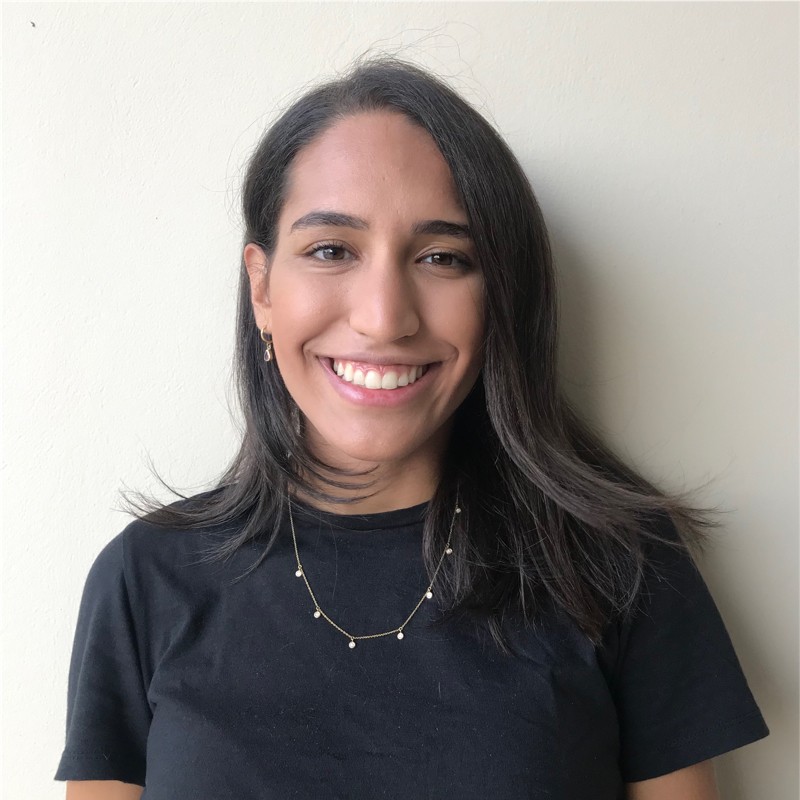 Name
Name
Nicole Christou
Project title
Understanding Amyloid Post-Translational Modifications at the Nanoscale
What were you doing before enrolling in the ICB CDT Programme?
After completing my undergraduate studies in Biochemistry at UCL, I pursued an MRes in Biological and Physical Chemistry at Imperial College to obtain hands-on laboratory experience and develop my resourcefulness and resilience as a researcher. I then seeked to gain valuable insights into the practical and commercial applications of my academic background in the industry by working as an R&D Junior scientist within the Molecular biology team at Oxsed Ltd. Driven by my intellectual curiosity and the freedom to explore and create knowledge, I decided to continue with a PhD in Chemical Biology.
Why did you choose to apply for your particular project?
I chose this project for my PhD because it seamlessly aligns with my research background as a biochemist. I considered it a natural progression to my MRes project that explored the intricate link between the structure and function of the Amyloid-β peptide in Alzheimer's disease. Beyond my professional background, unravelling the complexity of Alzheimer's disease speaks to me on a personal level. The pursuit of a cure for such a devastating and progressively debilitating disease, resonates deeply with my desire to contribute meaningfully to improving human health.
What are you looking forward to the most within the CDT programme?
I am excited to take part in ground-breaking research and have access to state-of-the-art facilities and resources, while being surrounded by researchers I can learn from. The CDT programme facilitates collaborations from various scientific backgrounds to broaden students’ learning. Additionally, I look forward to acquiring essential soft skills such as effective communication and teamwork, enabling me to approach challenges creatively and adapt to evolving research landscapes.
Please tell us a fun fact about yourself!
I come from a country that experiences around 300 days of sunshine per year, and yet I have chosen to pursue my PhD in the UK.
.jpg) Name
Name
Jack Dainton
Project Title
A novel and universal plug and play technology for molecular glue discovery
What were you doing before enrolling in the ICB CDT Programme?
I did my undergraduate and Masters degree in Chemistry at the University of Manchester. As part of my degree I had a year long placement at UCB, a biopharmaceutical company. I did my Masters project at the Manchester Institute of Biotechnology studying enzyme engineering by genetic code expansion. After graduating from Manchester I did a couple of shorter term placements, one in academia and one in industry followed by a few months of travelling before the start of the PhD.
Why did you choose to apply for your particular project?
Through my experience over my various placements and my Masters project I became very interested in using chemical biology tools for drug discovery. This project has allowed me to use my experience and interests in chemistry, biology, and high-throughput assay development to work on developing a new technology that could accelerate drug discovery in a relatively new field, and that is very exciting for me. This project also allowed me to work at both Imperial and The Francis Crick Institute which has been a fantastic experience.
What are you looking forward to the most within the CDT programme?
The CDT Den is a programme I am very excited about. I am very interested in being able translate our scientific research into impactful businesses and so having the opportunity to do that under expert business mentorship is going to be a fantastic experience, and perhaps even profitable…
Please tell us a fun fact about yourself!
I was on national TV with Joe Lycett and Davina McCall.
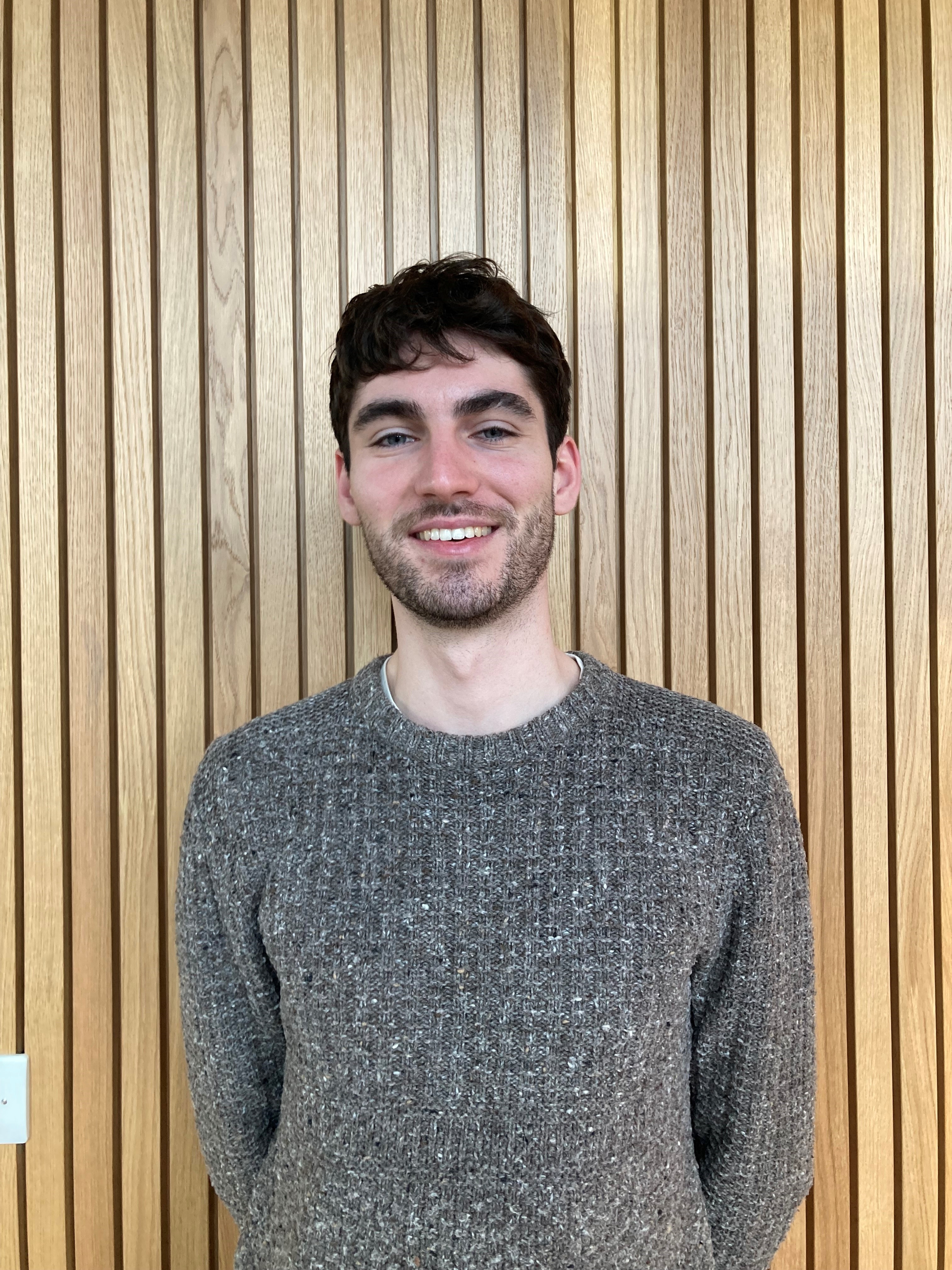 Name
Name
Simon Doughty
Project Title
An on-protein covalent fragment growth platform for PPIs
Co-sponsored by the Institute of Chemical Biology EPSRC Centre for Doctoral Training and AstraZeneca
What were you doing before enrolling in the ICB CDT Programme?
After finishing my undergraduate degree at the University of Leicester, I completed a RSC internship at a start-up company called Naturbeads, focussing on biodegradable and sustainable alternatives to plastic microbeads. During the Covid-19 pandemic I was working in a testing lab, which led to a position at Charles River in medicinal chemistry. Deciding to return to academia, I went to UCL for a MRes degree in organic chemistry and drug discovery, before gaining a place on the CDT at Imperial.
Why did you choose to apply for your particular project?
The project was particularly appealing to me as it has a foundation in novel synthetic chemistry, looking at making S(VI) compounds. This area is gaining a lot of interest among chemists and in the pharmaceutical industry, and the research is moving very quickly at the moment which makes it an exciting field to be involved in. The later part of the project involves applying these compounds in the discovery of covalent inhibitors, which again appealed to me as all the literature I was reading around this was very interesting, and is a worthwhile area to be focussing on.
What are you looking forward to the most within the CDT programme?
Science and communication training at the BBC!
Please tell us a fun fact about yourself!
I was born on Friday 13th but I haven’t had much bad luck (yet).
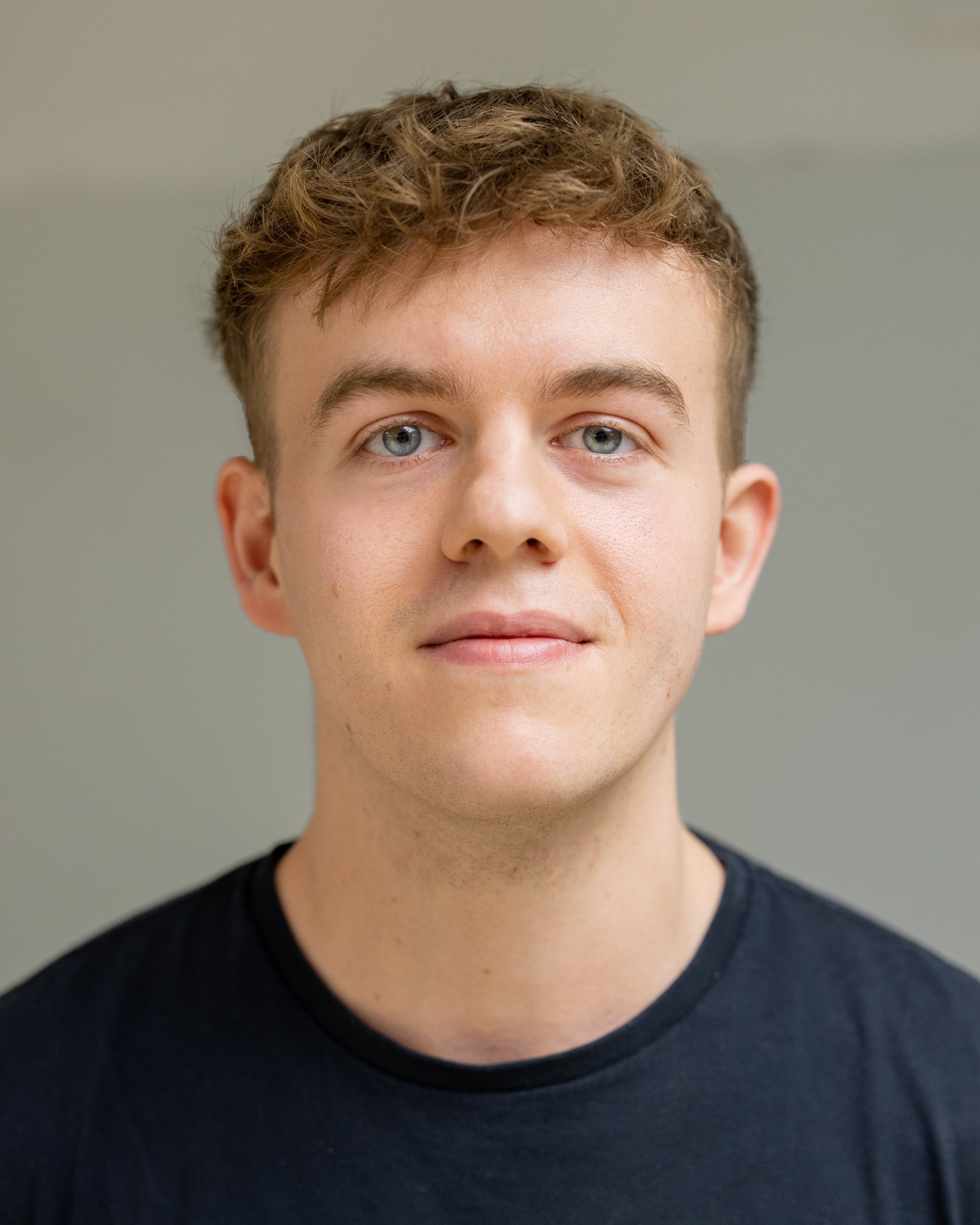 Name
Name
Zak Elliott
Project Title
Photoadapt: Light-switchable chameleonic molecules for controlled permeability in plants
Co-sponsored by the Institute of Chemical Biology EPSRC Centre for Doctoral Training and Syngenta
What were you doing before enrolling in the ICB CDT Programme?
I studied for a BSc in Chemistry at Queen Mary University of London, doing a short project in synthetic chemistry, involving photocatalysis and cross-metathesis to make Z alkenes. Following this I did a Masters (MRes) in Bioengineering here at Imperial, working on a selective nanoparticle drug delivery system for chemotherapy in ovarian cancer. This gave me experience with a range of science beyond chemistry, and a real interest in biology.
Why did you choose to apply for your particular project?
This project, and the CDT in general, seemed a great opportunity to combine my interests in chemistry and biology. Having some previous experience with photochemistry, its use in this project interested me, and getting to explore plant biology further down the line in collaboration with my industrial sponsors Syngenta let me continue my interest in biology.
What are you looking forward to the most within the CDT programme?
The CDT has loads of great training, but I’m most excited for EVOLVE which opens up loads of opportunities.
Please tell us a fun fact about yourself!
I’m trying to start a business with a friend after doing the CDT Den 2023, were I was a finalist.
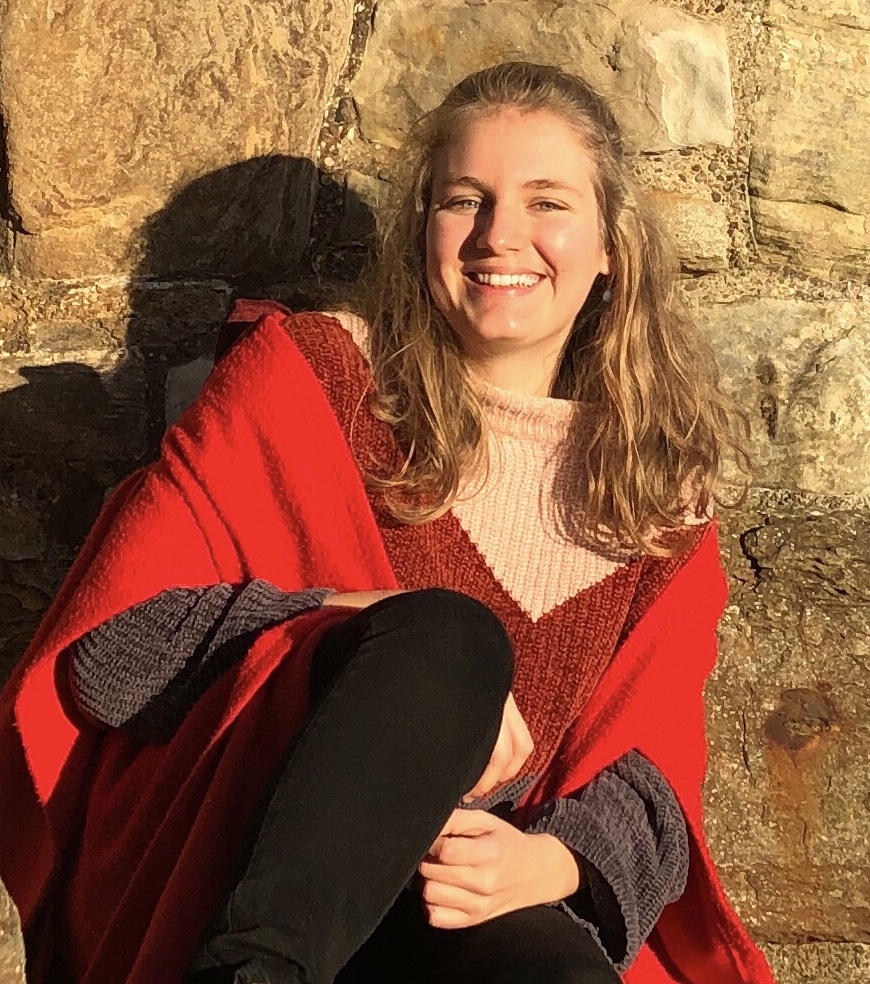 Name
Name
Anouk Huyghebaert
Project Title
An integrated chemical biology platform for discovery of next generation antibody-drug conjugate (ADC) linkers.
Co-sponsored by the Institute of Chemical Biology EPSRC Centre for Doctoral Training and AstraZeneca
What were you doing before enrolling in the ICB CDT Programme?
First, I completed my MChem in Chemistry with Medicinal Chemistry at the University of St Andrews, where I undertook my final year project under the supervision of Prof. Goss. investigating biorthogonal cross-coupling methodologies that enable fluorescence tagging of halogenated molecules. Next, I joined the ICB as an MRes student in the Aprile Group, where I looked at the synergistic aggregation of ALS/FTLD-related TDP-43 and C9orf72 GGGGCC repeat.
Why did you choose to apply for your particular project?
My previous degrees piqued my interest in the area of chemical biology, and this project fit that bill perfectly. The Tate Group also has lots of expertise across chemistry and biology, meaning that I would learn many new techniques and workflows which would help me forge a wide skillset going onto a career in research. The ADC landscape has also re-gained lots of attention in industry lately, making the project very interesting for translation into industrial applications.
What are you looking forward to the most within the CDT programme?
The activities and events that the CDT organises throughout the year to bring the cohorts together and allow to socialise with each other make the ICB such a supportive and close-knit environment. Besides that I’m excited for the SciComm work that we’ll get to do with the BBC!
Please tell us a fun fact about yourself!
I play quite a niche sport called korfball! It is played mostly in Belgium and The Netherlands, but has grown lots in the UK, with many universities having teams now.
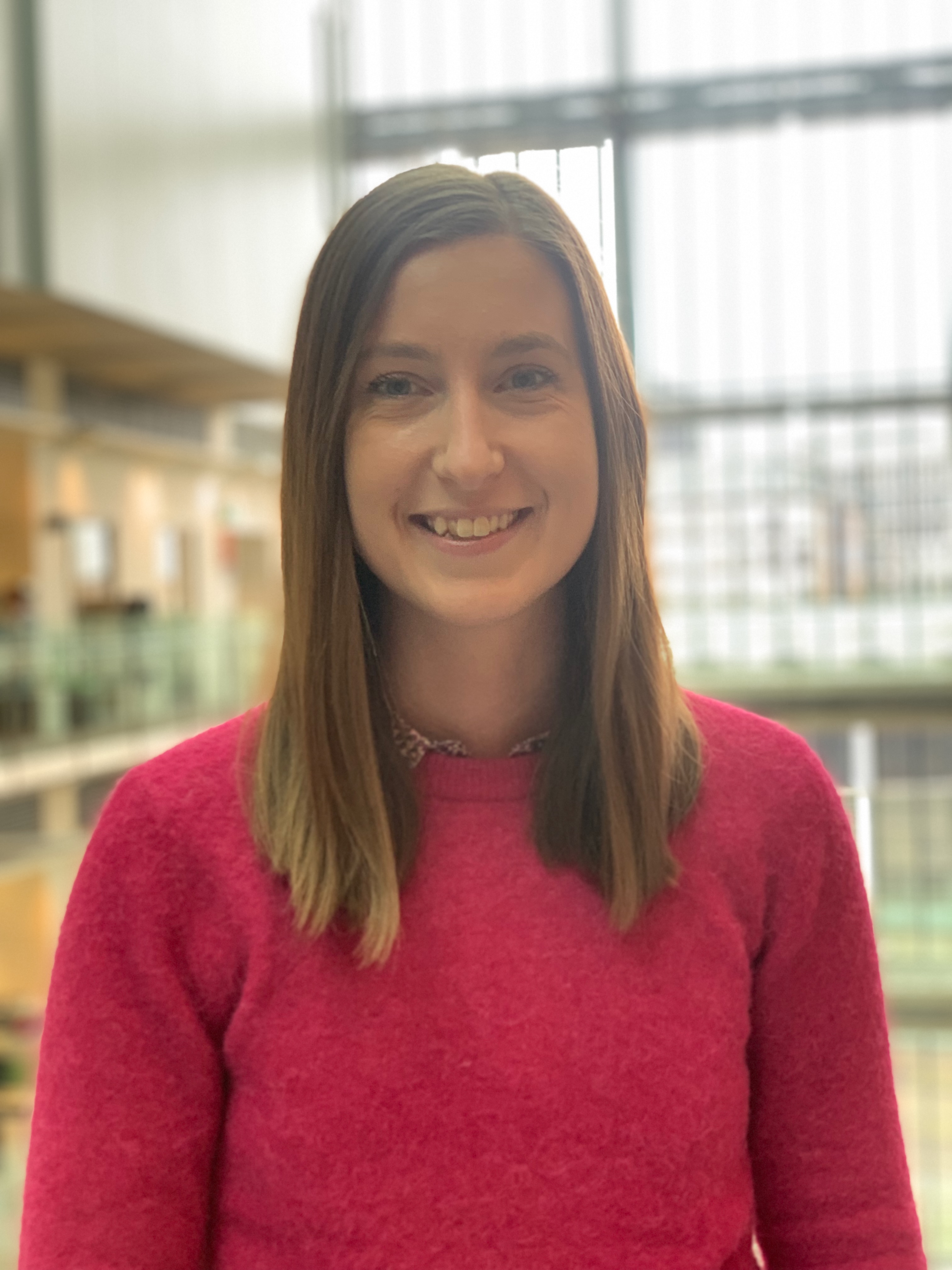 Name
Name
Cecilie Joergensen
Project Title
A high-throughput library approach for minimizing peptide off-targets
Co-sponsored by the Institute of Chemical Biology EPSRC Centre for Doctoral Training and Novo Nordisk
What were you doing before enrolling in the ICB CDT Programme?
I completed a BSc in Human Life Science Engineering and a MSc in Advanced and Applied Chemistry at the Technical University of Denmark. During my time there, I became very interested in the development of new drugs, which led me to pursue a job as a peptide chemist at a pharmaceutical company. Here, I worked in research chemistry, where I synthesised new peptide drug candidates.
Why did you choose to apply for your particular project?
I was looking for a project where I could apply what I had learned in my job, but where I could also expand my knowledge and skillset. This was the case for this project. Here, I would get to work with mRNA display, which I am very interested in and had not worked with before, while I could also use my existing experience in peptide chemistry.
Interactions with industry partner
I am working in my main supervisor, Dr Louise Walport’s Lab, but I also have a supervisor at Novo Nordisk. We have monthly meetings online, where I give a project update and we discuss what the next steps should be.
What are you looking forward to the most within the CDT programme?
All the CDT activities give us great chances to develop our transferable skills, but also to socialise with all cohort members. I am especially looking forward to the Human Centred Design course in the second year of the PhD.
Please tell us a fun fact about yourself!
I play (and love) handball, which is a popular sport in Denmark and many other European countries. I have joined the Imperial Handball Team, which is a nice way to meet people outside the programme.
 Name
Name
Anna Kukushkina
Project title
The Development of the Nanoluciferase-Proximity Labelling (NLProx) Platform for Investigating Intractable Targets.
Co-sponsored by the Institute of Chemical Biology EPSRC Centre for Doctoral Training and AstraZeneca
What were you doing before enrolling in the ICB CDT Programme?
I have completed MSci in Chemistry with a Year in Industry at Imperial!
Why did you choose to apply for your particular project?
I’m interested in the field of interactomics, and the potential of using interactomics tools for developing drugs targeting intractable proteins.
What are you looking forward to the most within the CDT programme?
There is a lot of cool things in the CDT programme, in particular I’m looking forward to the EVOLVE programme!
Please tell us a fun fact about yourself!
I try to casually include a picture of my cat in every presentation I give.
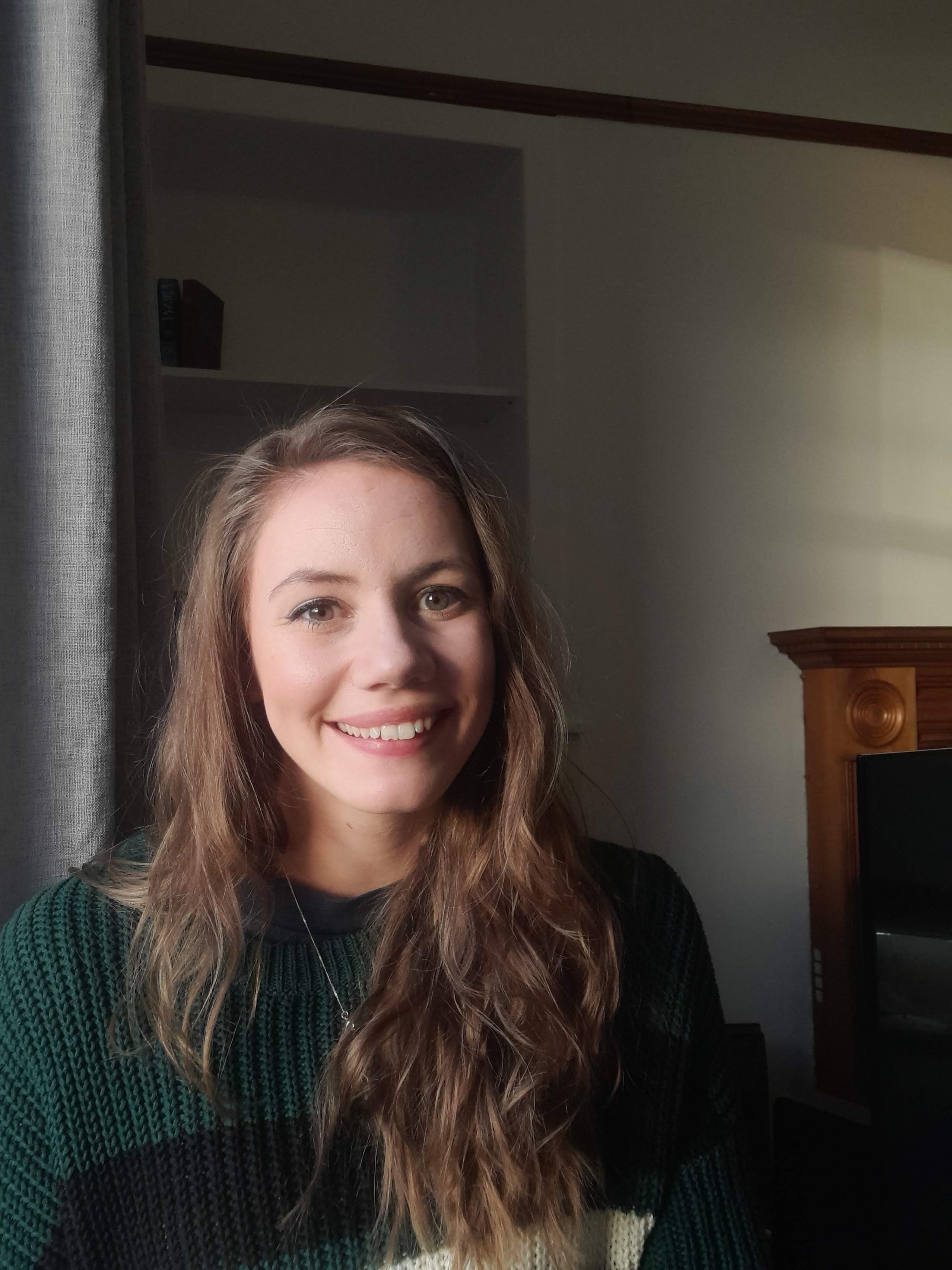 Name
Name
Amy McIntosh
Project Title
Photoactivatable molecular probes to study RNA-protein interactions
Co-sponsored by the Institute of Chemical Biology EPSRC Centre for Doctoral Training and Vertex Pharm. Ltd. Oxford
What were you doing before enrolling in the ICB CDT Programme?
I was working as a medicinal chemist at the Drug Discovery Unit in Dundee.
Why did you choose to apply for your particular project?
While I was working, I became really interested in the application of chemical tools to study biological systems and the impact this has on discovering therapeutics. At the same time, I became aware of the potential RNA has as an alternative therapeutic target to traditional protein drug discovery. This project was the perfect combination of applying my synthetic chemistry interests in a chemical biology setting to study RNA biology.
What are you looking forward to the most within the CDT programme?
The science communication opportunities, especially the BBC podcast.
Please tell us a fun fact about yourself!
Last year my twin sister gave birth to twin girls!
 Name
Name
Tom Mills
Project Title
Simultaneous imaging of protein-protein and protein-membrane interactions using molecular rotors
What were you doing before enrolling in the ICB CDT Programme?
I completed an MChem at the University of Oxford in 2022. As a member of the Vallance Group, my Part II project researched using machine learning models to correlate patient blood samples with their long-term clinical outcomes.
Why did you choose to apply for your particular project?
Throughout my undergraduate degree, I became interested in spectroscopic imaging techniques and the multitude of different applications that are possible using them. My project allows me to become an expert in one such technique, Fluorescence Lifetime Imaging Microscopy (FLIM), and apply it in novel ways – exploring and learning about the biochemical processes that govern biological systems.
What are you looking forward to the most within the CDT programme?
Science and communication training at the BBC.
Please tell us a fun fact about yourself!
My two brothers are also working towards becoming Doctors!
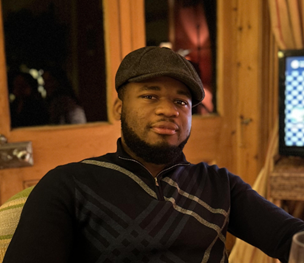 Name
Name
Sean Nwachukwu
Project Title
Enhancing C3 Photosynthesis with Water Soluble Biomimetics
What were you doing before enrolling in the ICB CDT Programme?
MChem in Chemistry with Medicinal Chemistry at the University of St Andrews
Why did you choose to apply for your particular project?
This is a project that I’ve been blessed to work on as it allows me to take my skills and knowledge I accumulated in undergrad and apply this in the context of plant biology, specifically in an area that could be instrumental to increasing the yield of crops and thus meeting food demand.
What are you looking forward to the most within the CDT programme?
The thrill of being at the forefront of groundbreaking research, as well as developing into well rounded scientist by the exciting activities and opportunities the CDT provides (such as HackEdu, Business classes and Science Communication with the BBC).
Please tell us a fun fact about yourself!
In terms of degrees of separation (social connections) I am four degrees separated from Queen Victoria.
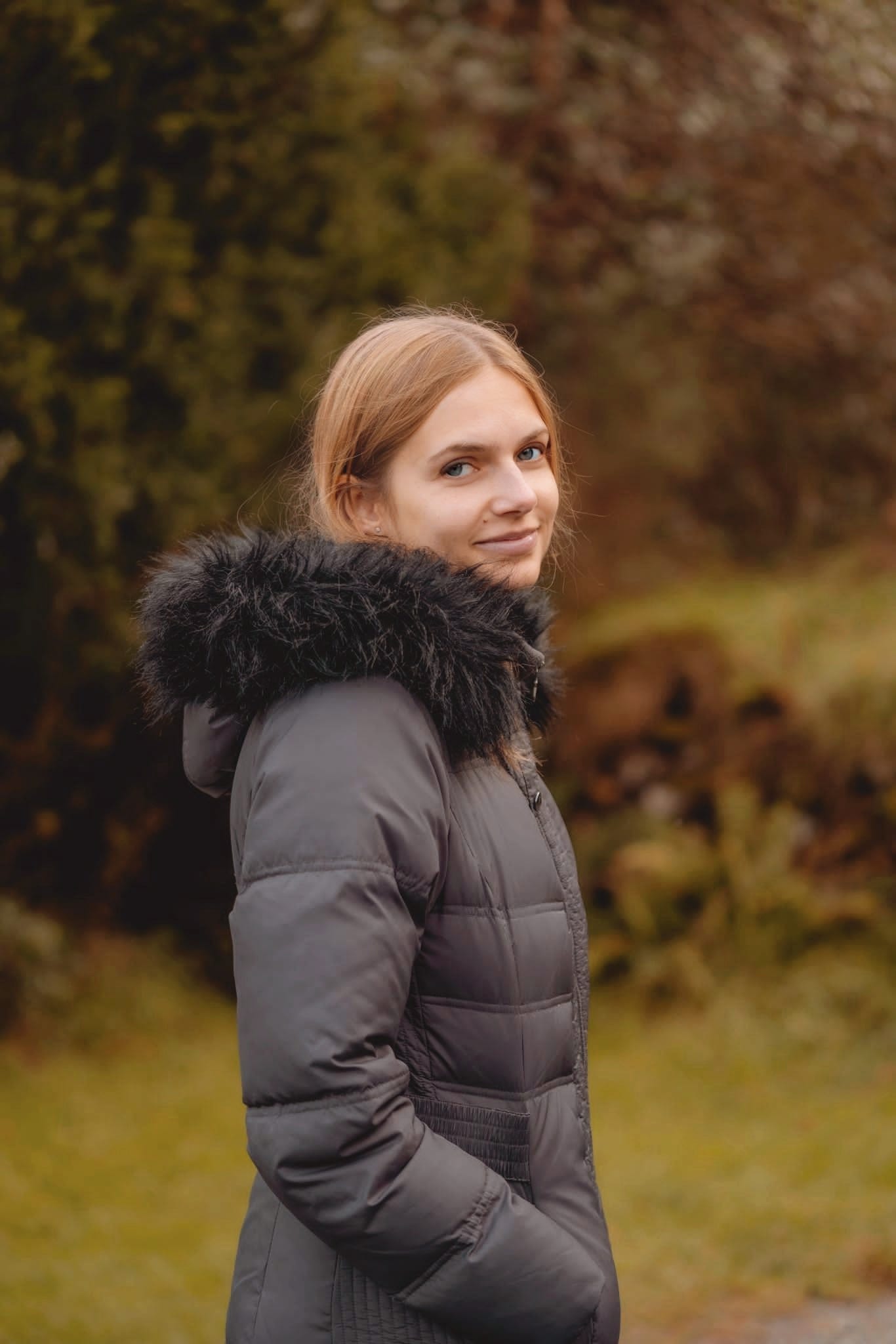 Name
Name
Sofia Philipps
Project Title
Next generation PHOTACS: A light switchable system for enhanced spatial and temporal precision in targeted protein degradation.
Co-sponsored by the Institute of Chemical Biology EPSRC Centre for Doctoral Training and AstraZeneca
What were you doing before enrolling in the ICB CDT Programme?
I finished my Bachelor's and Master’s degrees in chemistry at Leibniz University in Hannover, Germany. The Bachelor's degree covered all areas of chemistry, including several internships. Before starting my Master's, I spent five months at Bayer Pharmaceuticals in Bergkamen, where I worked on a project using augmented reality for training purposes in analytical chemistry labs. In my Master's, I chose to specialize in medicinal chemistry and natural product synthesis. Besides smaller synthesis and medchem projects, I worked on two larger projects, one at Imperial College as part of my ERASMUS+ programme on anti-cancer substrates and the other was the total synthesis of a potentially improved anti-viral product for my Master's thesis.
Why did you choose to apply for your particular project?
I have always been interested in organic and medicinal chemistry and was looking for a PhD project where I could apply and expand my knowledge in these fields and extend it to chemical biology. This research project caught my attention because it brings novel aspects to the rapidly growing field of PROTACs, incorporating the fascinating aspects of photopharmacology. With the prospect of applying my knowledge in an industrial setting, I was intrigued to work with AstraZeneca on such an exciting project and understand the industrial perspective and importance.
What are you looking forward to the most within the CDT programme?
All experiences in the CDT have been very educational and fun so far. One of the highlights was the Responsible Research and Innovation retreat in the first year. Which is why I am looking forward for any other trips and events that will come up. It is good to have this network of likeminded PhD students, both in terms of making friends but also getting scientific insights into other chemical biology PhD projects in different groups at Imperial.
Please tell us a fun fact about yourself!
I love working out and am doing a 200h yoga teacher training in Bali in February 2024.
 Name
Name
Abdullah Shahid
Project Title
Scalable chemical and microbial samplers to understand small molecule movement and impacts in soil ecosystems.
Co-sponsored by the Institute of Chemical Biology EPSRC Centre for Doctoral Training and Syngenta
What were you doing before enrolling in the ICB CDT Programme?
I was completing an integrated master’s degree in industry at a genome sequencing company. My main area of focus was product development, specifically enzyme performance and stability. This was a significant change from the pure chemistry that I was used to. It was challenging at first, but by the end a rewarding experience. I learned about a completely new field of science and was given a taste of the workings of a professional scientific environment.
Why did you choose to apply for your particular project?
Truthfully, I didn’t. I was not accepted for the initial project that I applied for. My application was picked up by my current supervisor from the pool, who asked if I was interested in his project. I did a little reading and was like why not? So here I am now.
What are you looking forward to the most within the CDT programme?
I am most looking forward to socialising and networking at all the events that the CDT provide. Also utilising the programmes offered by the CDT, such as EVOLVE, which enables students to undertake a personally driven activity ranging from an international research placement to a stint in a policy workplace.
Please tell us a fun fact about yourself!
I share the same birthday as my nephew!
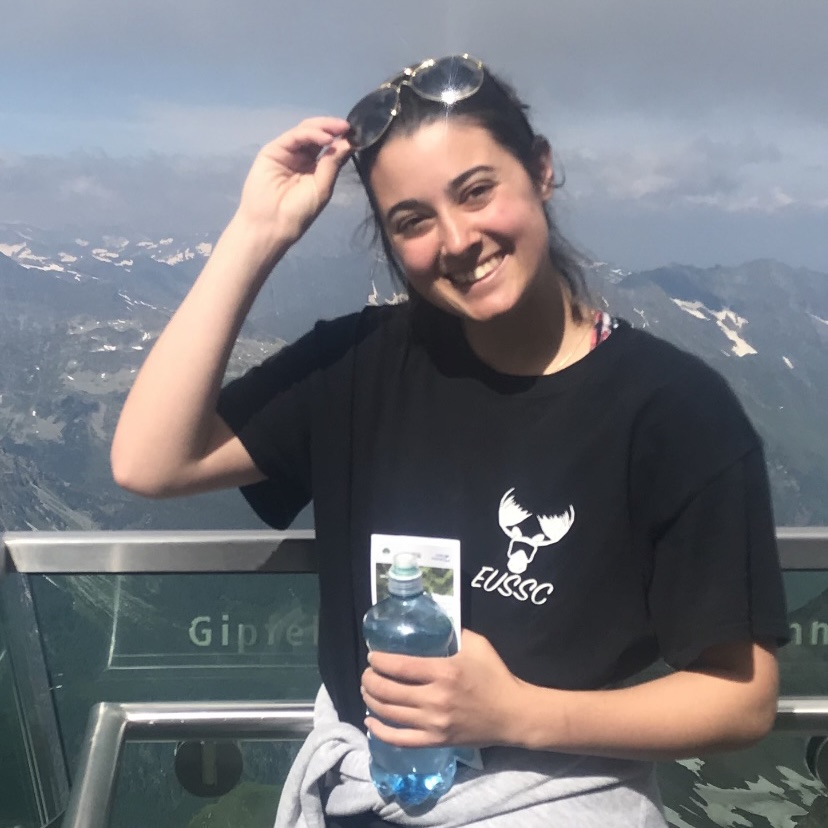 Name
Name
Sofia Srdanovic
Project Title
Unlocking new drug targets through antibody-targeted protein degradation.
Co-sponsored by the Institute of Chemical Biology EPSRC Centre for Doctoral Training and ADC Therapeutics
What were you doing before enrolling in the ICB CDT Programme?
I did my BSc in Chemistry at the University of Edinburgh, which I completed in 2022; my year-long BSc project was with Dr Chris Coxon. I focused on designing fluorinated chemical probes for studying protein aggregation pathways through 19F NMR. I’d never previously considered chemical biology, but this project made me see how interested I was in applying synthetic chemistry to a biological problem.
Why did you choose to apply for your particular project?
In my final year, I covered a few key chemical biology topics in lectures. I thought it was fascinating, especially targeted protein degradation and antibody-drug conjugates. I was thrilled when I saw this project offered in the Tate Group that combined these two topics!
I am co-sponsored by ADC Therapeutics, and it’s very handy that they’re located right next door, in the i-Hub. We have in-person meetings frequently, and hopefully I’ll get the opportunity to go on-site to perform some conjugations.
What are you looking forward to the most within the CDT programme?
I really like the sense of community within my CDT cohort. We’re all doing different projects, in a range of different groups – but we often get to come together and chat. It’s great for figuring out the answer to questions where you might want a different viewpoint. It’s also just nice to feel like you’re all in this together.
Please tell us a fun fact about yourself!
I was recently featured in a Patagonia ski film!
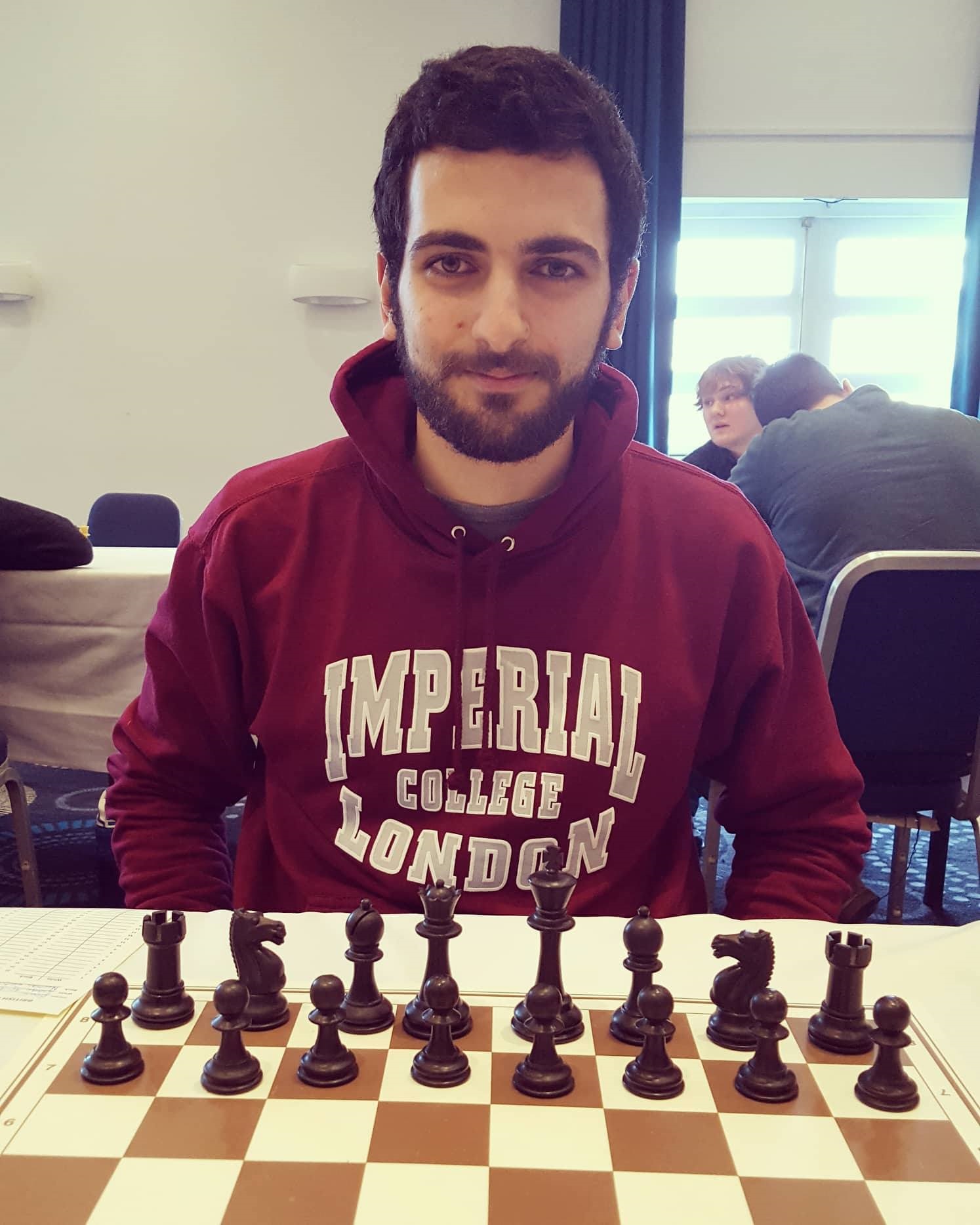 Name
Name
Nicolas Zeitouni
Project Title
DNA-based, microRNA-sensing artificial cells for diagnostics and therapeutics
What were you doing before enrolling in the ICB CDT Programme?
I completed my MEng in Biomedical Engineering at Imperial College London in 2021. I then took a year out to decide what I wanted my PhD research to focus on and apply to relevant projects.
Why did you choose to apply for your particular project?
DNA nanotechnology and artificial cell research are both pioneering fields with limitless applications in science and healthcare. The translational potential of this project through the combination of both fields, focused specifically on the early-stage detection of prostate cancer as well as targeted drug delivery, was a big motivation for me to apply for it. The supervisors of the project also played an integral part in my decision to apply.
What are you looking forward to the most within the CDT programme?
The community built by the ICB which fosters networking and collaboration is the most enjoyable aspect of being part of the CDT programme. Activities such as the annual scavenger hunt and the different retreats with our cohort, allow us to spend more time together, build strong interpersonal relationships with our peers and further our knowledge.
Please tell us a fun fact about yourself!
I am a member of a band called The Gastric Band in the Department of Bioengineering!
 Name
Name
Jonathan Bostock
Project title
Protected Pore-Bearing Liposomes for Intracellular Delivery of Cargo
I am sponsored by The Faculty of Natural Science's Schrödinger Scholarship Scheme.
What were you doing before enrolling in the ICB CDT Programme?
Before my PhD I studied Natural Sciences at Cambridge University. In my fourth year I carried out a research project in Paul Barker’s group, where I developed and characterized novel Ruthenium-based artificial metalloenzymes which catalysed alkene metathesis reactions.
Why did you choose to apply for your particular project?
I developed the concept and plan for this project alongside my supervisors Oscar Ces, Lorenzo di Michele, and James Hindley. We wanted to engineer a way to inject cargo directly into cells, bypassing the traditional cellular uptake mechanisms. We are designing a three-component system which uses a liposome as a hull; a pore-forming toxin to pierce the cell membrane, and a layer of DNA nanostructures to both protect the cargo and allow for specific cells to be targeted.
We hope this will allow for much higher delivery efficiency compared to existing technologies since we do not have to rely on the cell’s own uptake and processing mechanisms. We also hope that it will be a generic delivery system which functions independently of cargo.
What are you looking forward to the most within the CDT programme?
Whilst I’m not funded by the CDT, I am an incorporated student, which allows me to attend courses and events with the rest of the CDT cohort. Being part of a cohort has helped me find both friends and collaborators within the department. CDT events help create a great sense of community and camaraderie.
Please tell us a fun fact about yourself!
I used to play keyboard in an amateur jazz band. Before that I played keyboard in an even more amateur rock band.
 Name
Name
Eleanor Clifford
Project Title
Using EPR spectroscopy to probe electron transfer in biology: from model molecular wires to complex metalloenzymes
This project is funded by Bruker Ltd and the Department of Chemistry, Imperial College London
What were you doing before enrolling in the ICB CDT Programme?
I completed my undergraduate and master's degree in Natural Sciences, specialising in Chemistry, at University of Cambridge. I then worked as a Publishing Editor for the Royal Society of Chemistry before returning to academia to start my PhD.
Why did you choose to apply for your particular project?
I became interested in biological redox processes during my master’s project, where I studied cyanobacterial exoelectrogenesis for the development of biophotovoltaic devices. I applied for my current PhD project because I was excited to explore the topic of electron transfer in biology further, investigating paramagnetic centres in respiratory and photosynthetic enzymes, and by the opportunity to learn new techniques in both physical chemistry and biochemistry.
What are you looking forward to the most within the CDT programme?
The opportunity to work alongside a diverse and interdisciplinary cohort, and the collaboration and knowledge-sharing this will allow.
Please tell us a fun fact about yourself!
I can do a backflip!
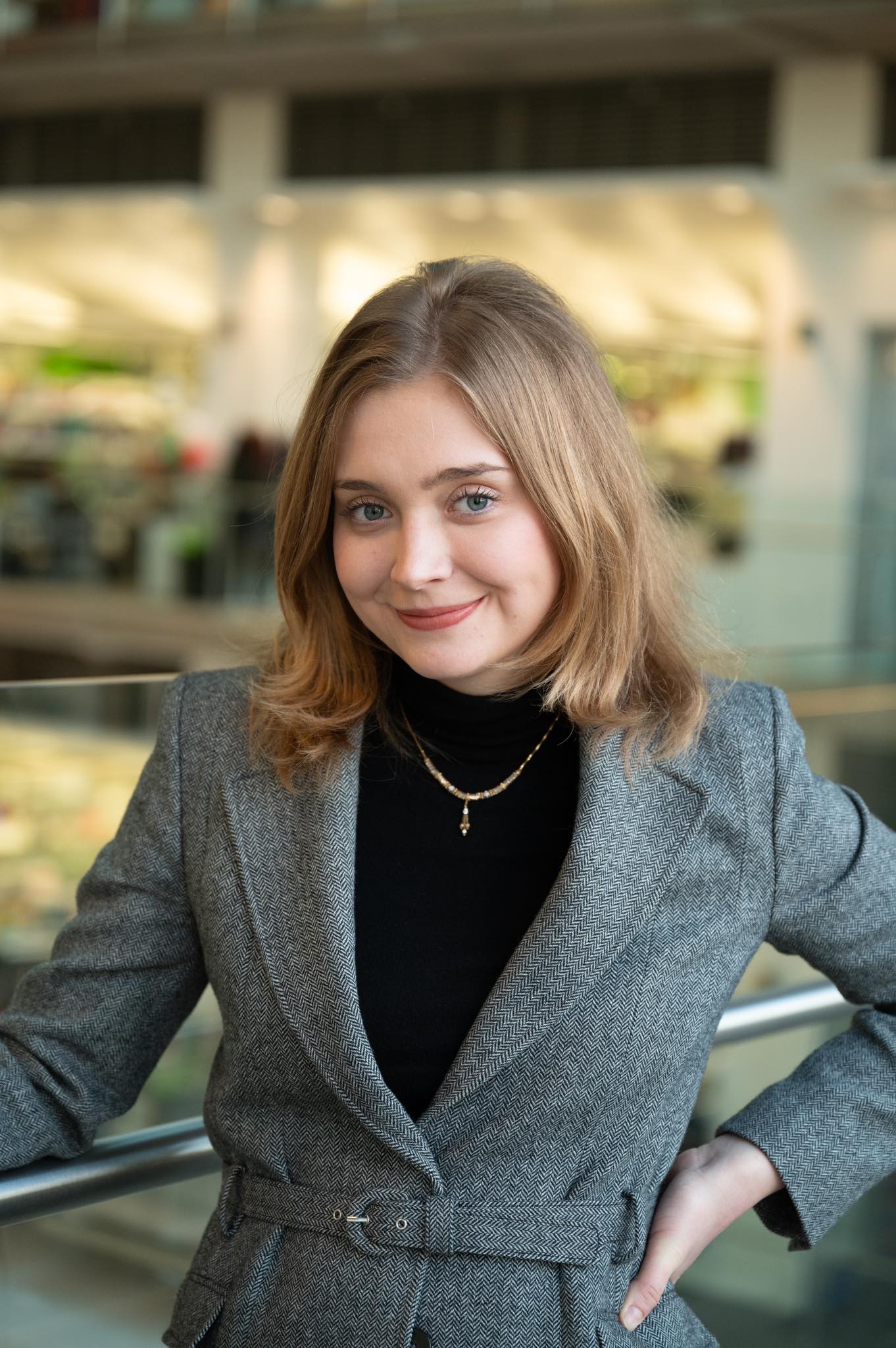 Name
Name
Dominika Daremiak
Project Title
Development of a small molecule inhibitor of GalNAc-T7 by Fragment-Based Drug Discovery
This project is funded by Prostate Cancer UK
What were you doing before enrolling in the ICB CDT Programme?
Before my PhD, I did my Bachelor’s at the University of Warwick in Chemistry with Medicinal Chemistry. I then pursued my education by doing a Master's in Drug Discovery and Development at Imperial College! My postgraduate project focused on finding inhibitors for an overexpressed enzyme in kidney cancer.
Why did you choose to apply for your particular project?
I chose my project because I wanted to stay in the Drug Discovery field and further develop my knowledge and skills in biochemistry! Additionally, GalNac-T7 is overexpressed in prostate cancer which enabled me to stay in cancer research.
What are you looking forward to the most within the CDT programme?
I am looking forward to meeting like-minded ambitious scientists who inspire me to reach my goal which is finding a cure for prostate cancer. Additionally, CDT organizes many useful trainings and workshops in career, academic and social development.
Please tell us a fun fact about yourself!
I am planning to study Russian literature and the history of art at one point!
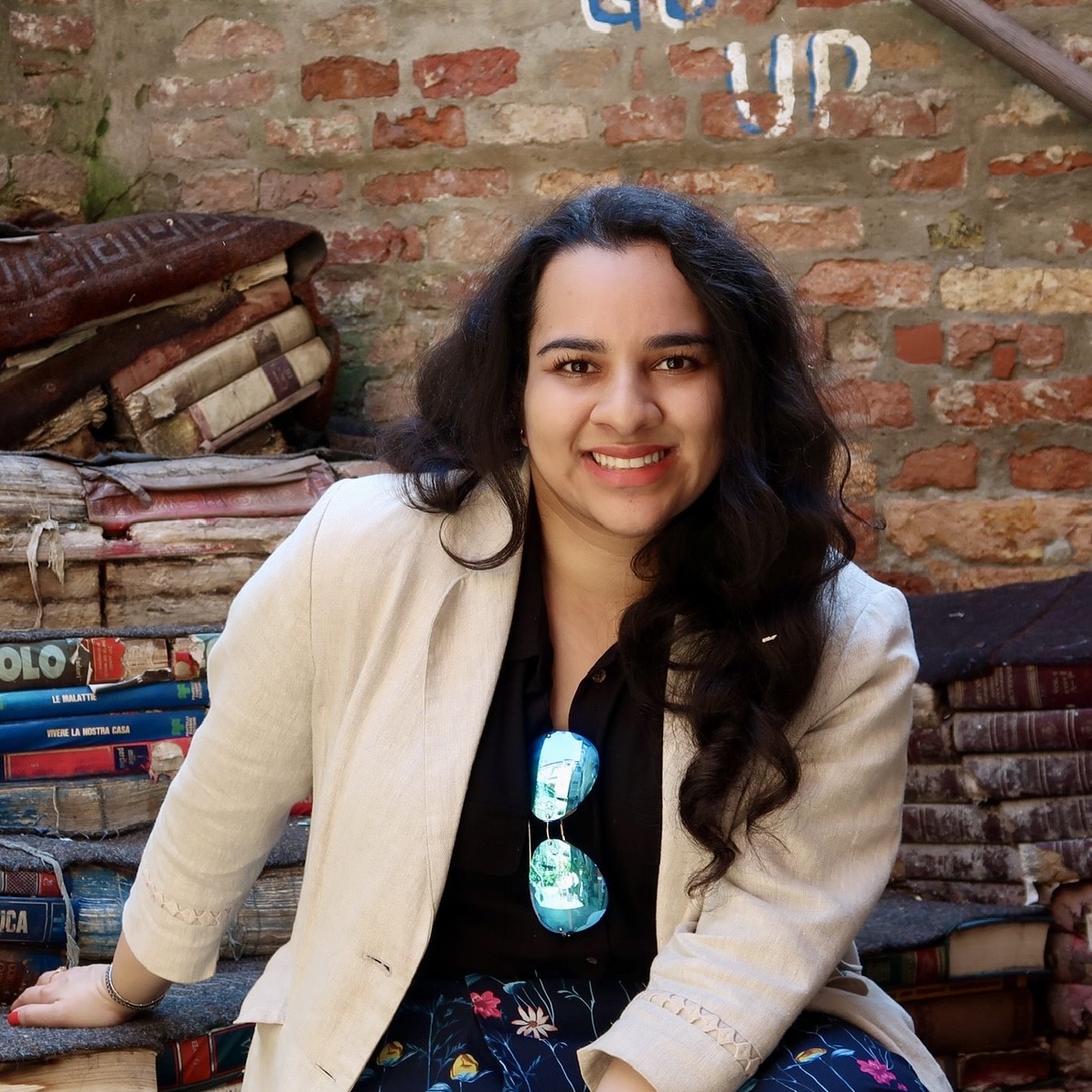 Name
Name
Fatemah Kassamali
Project title
Discovery and validation of novel protein lipidation drug targets in cancer
This project is funded by CRUK
What were you doing before enrolling in the ICB CDT Programme?
Prior to starting my PhD, I completed an MRes degree in Molecular and Cellular Biosciences at Imperial. In my master’s degree, I had the great privilege to hone my molecular biology skills in the Rudenko and Jimenez labs. This allowed me to practically build upon knowledge gained during my undergraduate degree in Biochemistry at King’s College London.
Why did you choose to apply for your particular project?
Through my studies, I have developed an interest in the complexity of biological events at the cellular level. From a molecular biology standpoint, the wide range of interactions that facilitate cell function and which are dysregulated to cause disease is awe-inspiring. The chance to deconvolute a small subsection of this complexity drove me to apply for my PhD project. The real-time translation of laboratory results from the benchside to the patient bedside is important to me, so I relished the opportunity to be a part of the Tate group, where the exploration therapeutic avenues for the treatment of cancer is a primary research focus.
What are you looking forward to the most within the CDT programme?
The CDT programme provides great opportunities for team building and socialisation amongst and between cohorts of students. Through these everyday conversations about science, it is amazing how much additional knowledge can be absorbed. The opportunity to learn both from and with one’s peers is fundamental to personal development.
Please tell us a fun fact about yourself!
My favourite thing to do on my commute is listen to an audiobook. The tally so far is 70+ and counting!
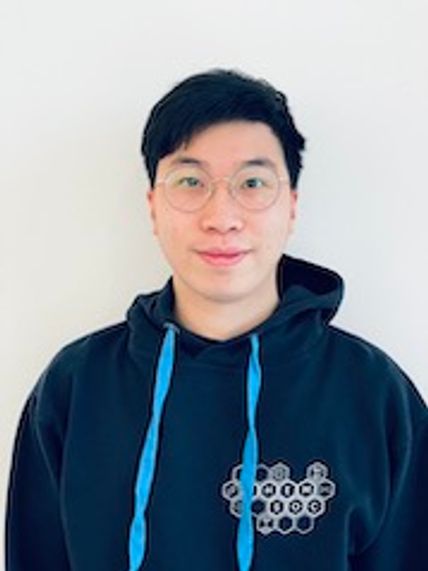 Name
Name
Titan Lai
Project Title
Heme Oxygenase-1 Targeted Probes for Diagnostic, Theranostic and Therapeutic Applications
Titan is funded via a Croucher Scholarship for Doctoral Study
What were you doing before enrolling in the ICB CDT Programme?
I was a MSci Chemistry student at Imperial (project supervised by Prof. Nicholas Long).
Why did you choose to apply for your particular project?
I chose this project because I enjoy synthetic chemistry and am excited about the impact this research can have on disease diagnosis and treatments. I was fortunate to be able to carry out a project which combines my interests and lab skills and applies them towards the biomedical field.
What are you looking forward to the most within the CDT programme?
I am most looking forward to experiencing interdisciplinary research through collaborations as well as gaining new skills.
Please tell us a fun fact about yourself!
In my spare time I play the double bass as part of Imperial College Sinfonietta.
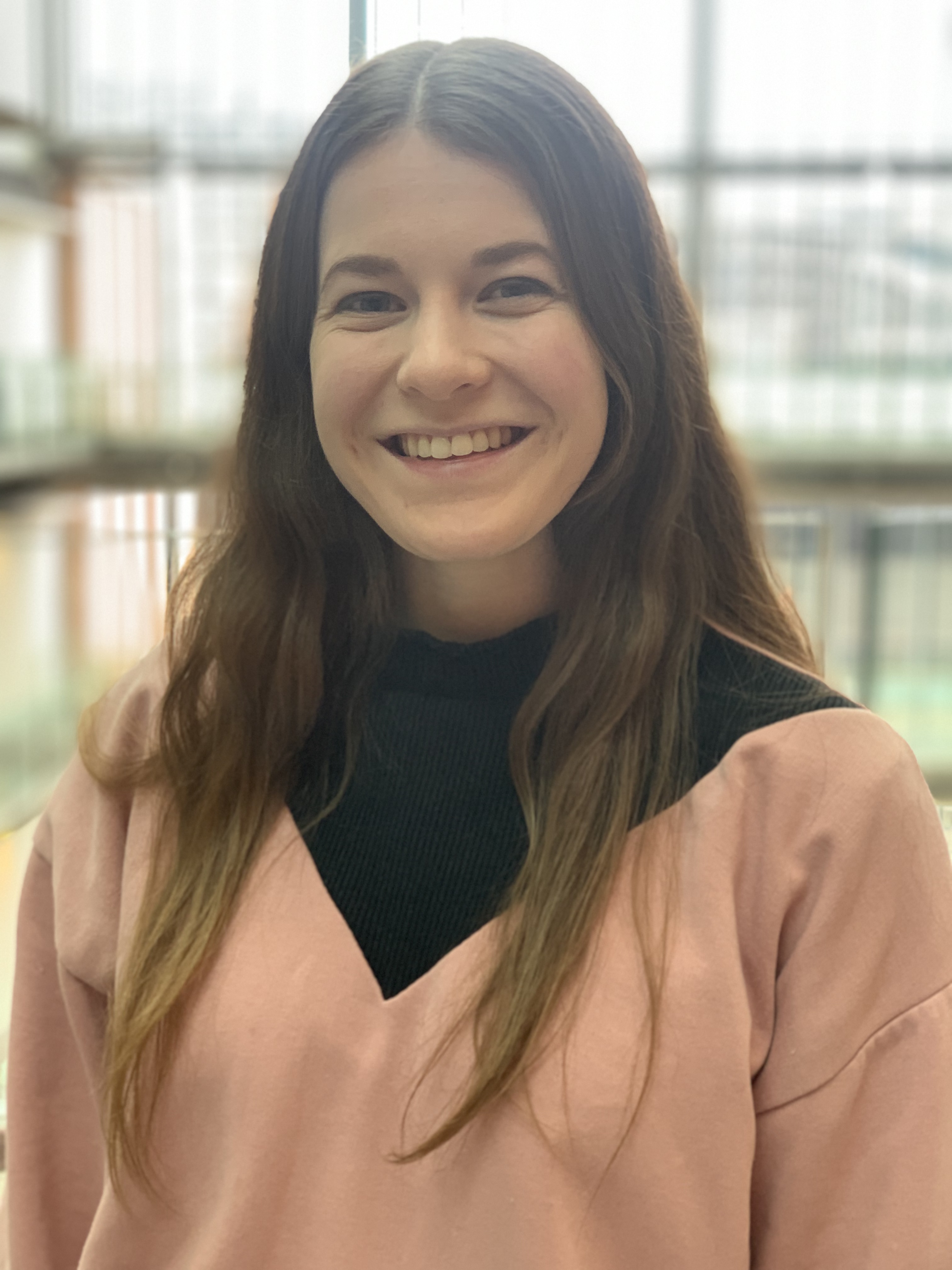 Name
Name
Issy Mathiesen
Project Title
An mRNA-display-based covalent cyclic peptide discovery platform
This project is funded by The European Research Council and the Department of Chemistry, Imperial College London.
What were you doing before enrolling in the ICB CDT Programme?
I finished my MSci in Natural Sciences at Durham University in 2021, where I specialised in biology and chemistry. After my degree, I worked in Cambridge for a biotech company, I was working in research and development of Cancer diagnostics
Why did you choose to apply for your particular project?
During my Master's research project, I became really interested in peptide drug discovery and knew it was something I wanted to pursue further. I heard about the RaPID system (an mRNA-display based peptide discovery platform) used in the Walport lab and I knew it sounded like a great project for me; I knew I could use my existing skill set but also learn a lot of new techniques.
What are you looking forward to the most within the CDT programme?
I’m looking forward to the outreach opportunities the CDT provides.
Please tell us a fun fact about yourself!
I’m a qualified scuba diver
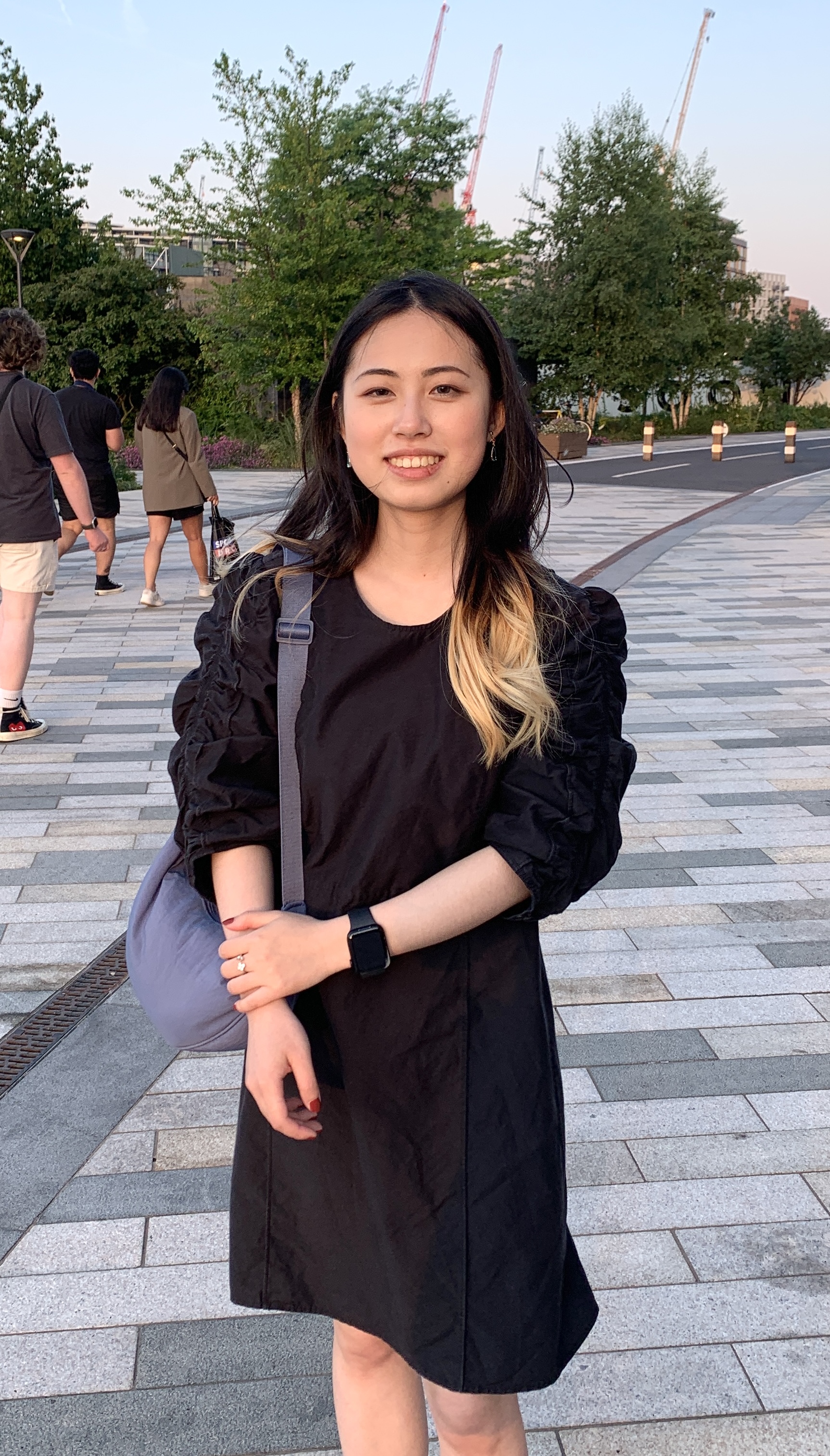 Name
Name
Xixian Yi
Project title
Nanopore-based Detection of HPV-induced Cancer Related Biomarkers from Liquid Biopsies
What were you doing before enrolling in the ICB CDT Programme?
Before starting my PhD, I was completing my MEng in Bioengineering with Molecular Bioengineering at the Imperial College London.
Why did you choose to apply for your particular project?
I am strongly driven to pursue research in the field of biosensors and their application in addressing healthcare challenges. This is based on my past coursework and my vision of a successful career. As a previous molecular bioengineering student, I concentrated on molecular bioengineering studies, and I wish to focus on HPV-induced cancer diagnosis. Nanotechnologies for Cancer Diagnosis and Therapies was one of my elective modules during my undergraduate study. It introduced me to the most recent nanotechnological breakthroughs in cancer diagnostic, ranging from biomarkers to minimally invasive cancer screening techniques. Other modules such as Chemical Sensors taught me the fundamental principles of chemical sensing. These modules sparked my fascination with nanochemistry. I believe my previous study and experience established much of the core biology and engineering knowledge required for my PhD project.
What are you looking forward to the most within the CDT programme?
I am looking forward to the science and communication course which I can learn the presentation skills that help me to become a better or a more inspiring and confident speaker.
Please tell us a fun fact about yourself!
My fun fact is that I really struggle to think of a fun fact when people ask for one!
The real fun fact is I have my first pet (a very cute puppy poodle) when I am 23.
Date last reviewed: 2 February 2024
Date last updated: 2 February 2024
2022 student projects

Issy Mathiesen
ICB CDT: Meet our students
Project Title: An mRNA-display-based covalent cyclic peptide discovery platform
This project is funded by The European Research Council and the Department of Chemistry, Imperial College London.
I finished my MSci in Natural Sciences at Durham University in 2021, where I specialised in biology and chemistry. After my degree, I worked in Cambridge for a biotech company, I was working in research and development of Cancer diagnostics.

Angeliki Chatziathanasiou
ICB CDT: Meet our students
Project title: Identifying new types of inhibitors in quinone binding sites in photosynthetic enzymes.
Co-sponsored by the Institute of Chemical Biology EPSRC Centre for Doctoral Training and Syngenta
Angeliki was raised in Greece and completed her undergraduate and postgraduate studies in Chemistry at the University of Crete. As part of her Master’s in Biochemistry, she spent 3 months in Consiglio Nazionale delle Ricerche - Istituto di Ricerca sugli Ecosistemi Terrestri in Florence, Italy, as an Erasmus+ fellow. In her master’s thesis, she studied the production of hydrogen, polyhydroxybutyrate, and exopolysaccharides in photosynthetic bacteria.
Currently, she is investigating binding mode of quinone-site inhibitors in photosynthetic enzymes using EPR, ultimately with the aim to identify new inhibitors and improve agricultural sustainability.

Abdullah Shahid
ICB CDT: Meet our students
Project Title: Scalable chemical and microbial samplers to understand small molecule movement and impacts in soil ecosystems.
Co-sponsored by the Institute of Chemical Biology EPSRC Centre for Doctoral Training and Syngenta
Before enrolling in the ICB, I was completing an integrated master’s degree in industry at a genome sequencing company. My main area of focus was product development, specifically enzyme performance and stability. This was a significant change from the pure chemistry that I was used to. It was challenging at first, but by the end a rewarding experience. I learned about a completely new field of science and was given a taste of the workings of a professional scientific environment.

Cecilie Joergensen
ICB CDT: Meet our students
Project Title: A high-throughput library approach for minimizing peptide off-targets
Co-sponsored by the Institute of Chemical Biology EPSRC Centre for Doctoral Training and Novo Nordisk
Before enrolling in the ICB, I completed a BSc in Human Life Science Engineering and a MSc in Advanced and Applied Chemistry at the Technical University of Denmark. During my time there, I became very interested in the development of new drugs, which led me to pursue a job as a peptide chemist at a pharmaceutical company. Here, I worked in research chemistry, where I synthesised new peptide drug candidates.

Anna Kukushkina
ICB CDT: Meet our students
Project title: The Development of the Nanoluciferase-Proximity Labelling (NLProx) Platform for Investigating Intractable Targets.
Co-sponsored by the Institute of Chemical Biology EPSRC Centre for Doctoral Training and AstraZeneca
Before enrolling in the ICB CDT Programme, I have completed MSci in Chemistry with a Year in Industry at Imperial!

Anouk Huyghebaert
ICB CDT: Meet our students
Project Title: An integrated chemical biology platform for discovery of next generation antibody-drug conjugate (ADC) linkers.
Co-sponsored by the Institute of Chemical Biology EPSRC Centre for Doctoral Training and AstraZeneca
Anouk received her MChem in Chemistry with Medicinal Chemistry from the University of St Andrews in 2022, completing her thesis under the supervision of Prof. Rebecca Goss on merging synthetic biology and chemistry to enable the biorthogonal fluorescence tagging of halogenated molecules. Following her MChem, Anouk joined the groups of Dr. Francesco Aprile and Dr. Marco Di Antonio to complete an MRes in Chemical Biology. There her research focused on investigating the synergistic aggregation of ALS/FTD-related TDP-43 protein and C9orf72 GGGGCC repeat. In 2023, Anouk joined the ICB CDT PhD programme developing an integrated chemical biology platform for discovery of next-generation antibody drug conjugate (ADC) linkers.

Fatemah Kassamali
ICB CDT: Meet our students
Project title: Discovery and validation of novel protein lipidation drug targets in cancer
This project is funded by CRUK
Prior to starting my PhD, I completed an MRes degree in Molecular and Cellular Biosciences at Imperial. In my master’s degree, I had the great privilege to hone my molecular biology skills in the Rudenko and Jimenez labs. This allowed me to practically build upon knowledge gained during my undergraduate degree in Biochemistry at King’s College London.

Nicolas Zeitouni
ICB CDT: Meet our students
Project Title: DNA-based, microRNA-sensing artificial cells for diagnostics and therapeutics
Nicolas is a PhD student at the Department of Chemistry at Imperial College London. He completed an MEng in Biomedical Engineering at Imperial College London in 2021. His current research focuses on building DNA-based artificial cells that can detect prostate cancer-associated miRNAs and be used as a targeted drug delivery system. He is co-supervised by Dr. Lorenzo Di Michele, Dr. Sylvain Ladame, Professor Charlotte Bevan and Dr. Nick Brooks. In his spare time, Nicolas enjoys playing chess, playing the guitar and singing in a band, and watching sports.

Jack Dainton
ICB CDT: Meet our students
Project Title: A novel and universal plug and play technology for molecular glue discovery
Before enrolling in the ICB CDT Programme, I did my undergraduate and Masters degree in Chemistry at the University of Manchester. As part of my degree I had a year long placement at UCB, a biopharmaceutical company. I did my Masters project at the Manchester Institute of Biotechnology studying enzyme engineering by genetic code expansion. After graduating from Manchester I did a couple of shorter term placements, one in academia and one in industry followed by a few months of travelling before the start of the PhD.

Tom Mills
ICB CDT: Meet our students
Project Title: Simultaneous imaging of protein-protein and protein-membrane interactions using molecular rotors
Tom graduated in 2022 from the University of Oxford with a Masters in Chemistry (MChem). His Part II year research project, under the supervision of Claire Vallance, explored using machine learning to correlate clinical outcomes of heart attack (STEMI) patients with mass spectra obtained from their blood samples.
Tom joined the Kuimova, Barnard and Bryne Groups on an ICB CDT studentship at Imperial College London in 2022, where his research focuses on using Molecular Rotors as a novel method of imaging the inhibition of Protein-Protein interactions.

Xixian Yi
ICB CDT: Meet our students
Project title: Ultrasensitive Detection of HPV-induced Cancer Related Biomarker from Liquid Biopsies
Xixian is a 2022 ICB CDT student co-supervised by Prof. Joshua Edel, Dr Sylvain Ladame and Dr Aleksandar Ivanov. Previously, she completed a MEng in Molecular Bioengineering at Imperial College in 2022. Her current project is focused on developing multiplexed DNA molecular probes combined with nanopore sensing to detect circulating DNA as diagnostic options for HPV related cancers.

Sofia Srdanovic
ICB CDT: Meet our students
Project Title: Unlocking new drug targets through antibody-targeted protein degradation.
Co-sponsored by the Institute of Chemical Biology EPSRC Centre for Doctoral Training and ADC Therapeutics
Sofia completed her BSc in Chemistry at the University of Edinburgh in 2022. She did her final year project with Dr Chris Coxon, developing fluorinated probes to investigate protein misfolding and aggregation through 19F NMR. Sofia is now a 1st year PhD student in the Tate group, working on harnessing the cell selectivity of antibody-drug conjugates in order to overcome the limitations of targeted protein degradation.

Sean Nwachukwu
ICB CDT: Meet our students
Project Title: Enhancing C3 Photosynthesis with Water Soluble Biomimetics
Before enrolling in the ICB CDT Programme, MChem in Chemistry with Medicinal Chemistry at the University of St Andrews.

Simon Doughty
ICB CDT: Meet our Students
Project Title: An on-protein covalent fragment growth platform for PPIs
Co-sponsored by the Institute of Chemical Biology EPSRC Centre for Doctoral Training and AstraZeneca.
Following undergraduate studies at the University of Leicester (BSc Pharmaceutical Chemistry), Simon undertook a 6-month Royal Society of Chemistry internship at the start-up company Naturbeads. During the covid-19 pandemic, he worked in a qPCR testing lab in Cambridge, followed by an Associate Scientist position in medicinal chemistry at Charles River. Returning to Academia in 2021, he completed a MRes in Organic Chemistry: Drug Discovery at University College London, before joining the ICB CDT at Imperial.

Jonathan Bostock
ICB CDT: Meet our Students
Project Title: Protected Pore-Bearing Liposomes for Intracellular Delivery of Cargo
I am sponsored by The Faculty of Natural Science's Schrödinger Scholarship Scheme.
Before my PhD I studied Natural Sciences at Cambridge University. In my fourth year I carried out a research project in Paul Barker’s group, where I developed and characterized novel Ruthenium-based artificial metalloenzymes which catalysed alkene metathesis reactions.

